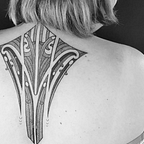What is a decolonised city? [Part 1]
Imagine a world where Maori land was returned and treaty settlements were paid, is this really a decolonised world? It was a question that Moana Jackson asked us at the event Imagining a decolonised city at Takapūwāhia Marae on Saturday 13th May.
It was an event organised by the Imagining Decolonised cities team. This team is a research collaboration between Ngāti Toa and Victoria University of Wellington. The project has been funded by the New Zealand National Commission for UNESCO, with support and prize sponsorship from Te Puna Mātauranga, Ngāti Toa, Housing New Zealand, New Zealand Māori Tourism, Porirua City Council, Peter and Sue Dow and Architecture Now. This team had run a competition for proposals on what a decolonised city would look like. I was able to attend their public hui in support of this competition before they announced the winners of their competition.
They had some amazing speakers, Patricia Grace, Rangi Kipa, Lena Henry, Moana Jackson, Alice Andrews, Kara Puketapu-Dentice and Jennie Smeaton. With a speaker from Brisbane, Kevin O’Brien, who was an Architect native to aboriginal lands and Torres Strait Islands.
Patricia Grace talked about her ‘consultation’ from NZTA and the terrible engagement that had taken play with the Waikanae express. She talked of the history of the land and being sick of being ‘consulted’ at the last minute. The stories of her being bullied by NZTA and their Māori Liasons, although as graceful (no pun intended) she also mentioned how engagement post her getting annoyed was more respectful. She talked about how the NZTA tried to take the land from her whānau and how she used the law to keep it. With stories of how trying to share stories with companies, organisation and governments does not provide empathy when they want to do something. She posed a question to us of why are NZTA and Waitangi tribunal working with iwi to correct past wrongs when they’re still taking? And how can we have a great city while we have child poverty and unclean waters.
Next was Rangi Kipa. I must confess that Rangi’s talk really resonated with me with the inspiration and ideas I had come up with from a conference I attended late last year in Whāingaroa (Raglan). I wrote 3 pages of notes from Rangi’s talk alone. He talked about he cannot see a way forward in this world without relationships and how we need to reprioritise our priorities to have our environment at the forefront, not people. Unlike our favourite whakataukī we often recite (He aha te mea nui o te ao? He tangata, he tangata, he tangata).
Rangi talked about how in a country like Aotearoa how we can have deficits? When we have a prime location for collective gardens. That we should have a vested relationship in our well being and each other. He talked about a collective he’s organising with his brother where their aspiration is to ‘refer back to Papakāinga’. A 7 hector land collective, with a shared goal and the ability to resist political and economical forces. He talked about his home marae and how they struggle with the concept of a collective but romanticise it. That they’re strangers to each other, even when kin. Rangi also talked about how we’re leaving children with problems we’ve inherited and this is not acceptable. Collective contributes to ourselves socially, economically and mentally. His words that were horrifyingly true was that we can always find a place for people to be buried, but not for people to live. Why work your entire life and not buy a house? Not just for Māori but it supersedes identity politics. Rangi’s dream is to have a Pākehā, māori and other cultures all live together under a single code of ethics. Creating a common language and not siloing ourselves with titles such as Maori, Pakeha and other divisive language. We need to be honest about who we are? What is Pākehātanga and how do we facilitate pākehā’s connection to our whenua? Ensuring we have a vested interest in each other.
Lena Henry who works in Tāmaki talked again about how iwi and hapū were sick of being ‘consulted’. About how organisations are talking about the same things over and over again. Iwi and hapū want to take up more active roles in decision making. They want to be hosts, be leaders, be able to do manaakitanga. Lena also questioned how when Maori are in other rohe, how do they supported mana whenua? To finish off again, Lena talked about how with the Kotahitanga declaration iwi and hapū determined their own rules for that rohe, the mana of iwi and hapū were upheld. Being part of the decisions making process and being deciders.
Before this blog post gets too much longer I will stop there and write up the rest of the speakers in another blog post. It was definitely food for thought and interesting concepts is each of the fields these respective Kaikōrero came from.
